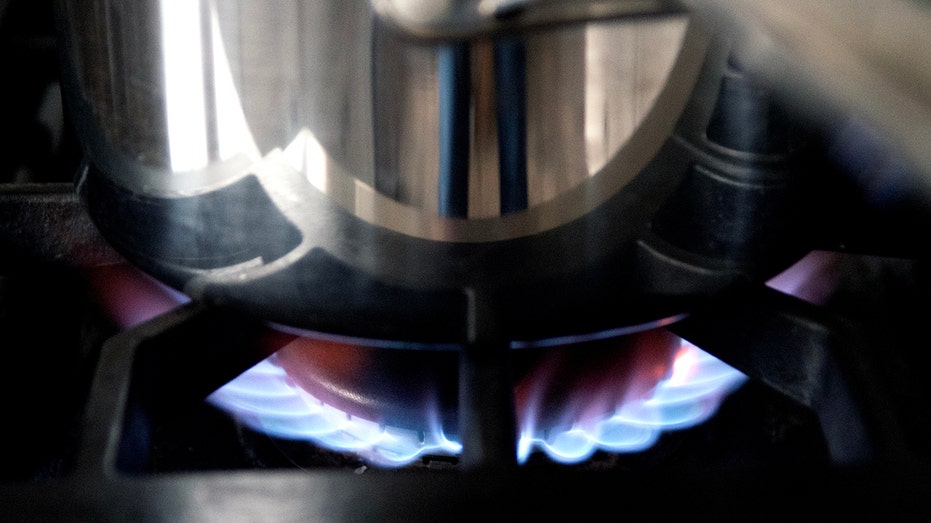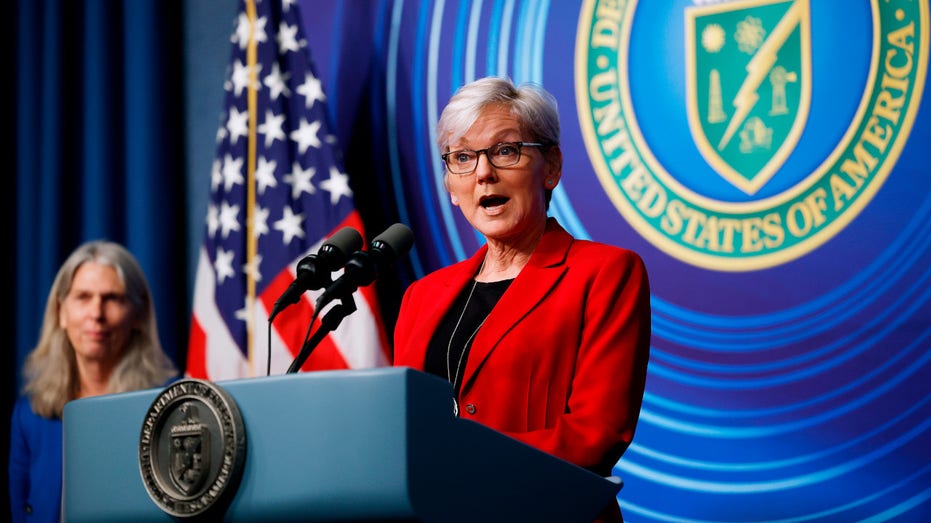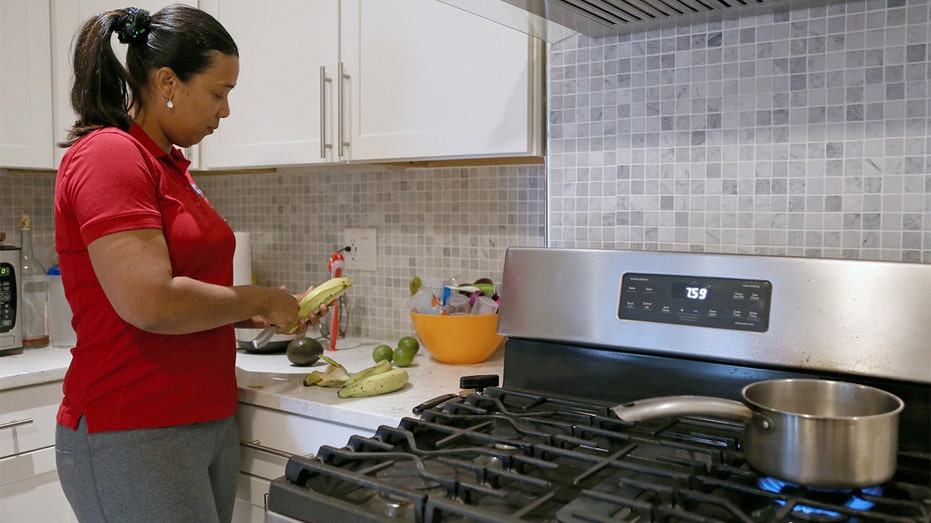Energy Department proposes tighter efficiency standards for gas, electric stoves and ovens
Department of Energy says new efficiency standards for gas and electric stoves will result in billions in cost savings
Rick Perry rips 'environmental woke crowd' for pushing ban on gas stoves: 'This is about controlling your life'
Former Texas governor and former energy secretary Rick Perry blasts left-wing green energy groups pushing to ban gas stoves, on 'Kudlow.'
The Biden administration is set to reignite debate over gas stoves as the Department of Energy on Wednesday proposed new efficiency standards for consumer cooking appliances.
The proposed regulations come just weeks after the Biden White House was forced to clarify the president does not support a ban on gas stoves following public outcry after a consumer product safety official suggested that option was "on the table."
In a notice of proposed rulemaking, the Department of Energy said it has "tentatively concluded" that new energy conservation standards for stove appliances would be technologically feasible and economically justified. The agency proposed new limitations on how much energy electric stove tops (both coil and smooth) and gas cooking tops may consume in a year.
In a shift, the Department proposes to end the prohibition on constant burning pilot lights in gas stoves, but says a stove with a constant burning pilot light would not meet the new efficiency standards.
AMERICAN GAS ASSOCIATION FIRES BACK ON POTENTIAL GAS STOVE BAN: ‘NOT SUBSTANTIATED BY SOUND SCIENCE’

In this photo illustration a pot sits on flames burning on a natural gas burning stove on Jan. 12, 2023, in North Haledon, New Jersey. (Michael Bocchieri/Getty Images / Getty Images)
Around half of all models currently on the market would not comply with the proposed standards without modifications, a Department of Energy spokesperson told FOX Business.
The department argued that stove appliances achieving its proposed standards are already commercially available and that the benefits to consumers and the climate exceed the potential burdens. Regulators estimated that the new standard would raise the upfront cost of stove products by $32.5 million per year, but save $100.8 million annually in operating costs, while generating $67 million in climate benefits and $64.9 million in health benefits.
"As required by Congress, the Department of Energy is proposing efficiency standards for gas and electric cooktops — we are not proposing bans on either," a department spokesperson said. "The proposed standards would not go into effect until 2027 and cumulatively save the nation up to $1.7 billion. Every major manufacturer has products that meet or exceed the requirements proposed today."

Energy Secretary Jennifer Granholm, right, is joined by National Nuclear Security Administration head Jill Hruby and other officials for a news conference at the Department of Energy headquarters to announce a breakthrough in fusion research on Dec. (Chip Somodevilla/Getty Images / Getty Images)
The Biden administration stumbled into a controversy last month after U.S. Consumer Product Safety Commissioner Richard Trumka Jr. suggested that the administration could ban gas stoves, which are claimed to emit pollutants that cause respiratory and health issues.
Trumka told Bloomberg that "any option is on the table" as the commission develops regulations to make gas stoves safer. "Products that can't be made safe can be banned," he said.
SMALL BUSINESS OWNERS TORCH GAS STOVE BAN AS ‘BLANKET’ POLICY: IT ‘ISN’T FOR EVERYONE'

Yohanny Cespedes prepares breakfast on her gas stove, Sept. 12, 2019, in Lawrence, Massachusetts. (Angela Rowlings/MediaNews Group/Boston Herald via Getty Images / Getty Images)
Roughly 35% of homes in the U.S. have gas stoves that, according to reports, release carbon monoxide, nitrogen dioxide and other matter that the World Health Organization and EPA have deemed unsafe because they can cause cardiovascular problems, cancer and other health conditions.
Trumka's remarks set off Republican lawmakers, who slammed the move as the "'nanny state' at its worst." In response to the outrage, White House press secretary Karine Jean-Pierre said President Biden does not support banning gas stoves. Trumka eventually walked back his comments, and U.S. Product Safety Commission Chairman Alex Hoehn-Saric issued a statement clarifying there was no effort to ban gas stoves in the works.
The Department of Energy says its proposed energy efficiency standards for stovetop appliances would save a "significant amount" of energy, estimating the national energy savings to be "the equivalent of the electricity use of 19 million residential homes in one year."
GET FOX BUSINESS ON THE GO BY CLICKING HERE
The agency is now inviting the public to comment on the proposed rule. If enacted, the standards would apply to products manufactured or imported into the U.S. three years after the rule is finalized.
FOX Business' Daniella Genovese and Sarah Rumpf contributed to this report.





















